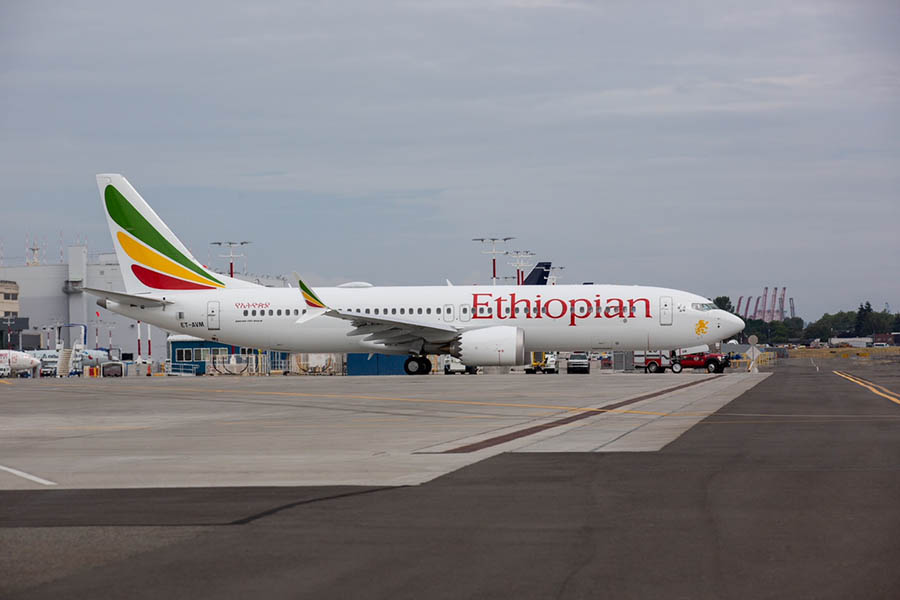On March 10, 2019, Ethiopian Airlines Flight 302 had taken off from Addis Ababa Bole International Airport in Ethiopia for Jomo Kenyatta International Airport in Nairobi, Kenya. The Ethiopian Boeing 737 MAX 8 crashed six minutes after takeoff, killing all 157 people aboard.
"Safety is our topmost priority... and it guides every decision we make and all actions we take," the company's chairman, Tewolde Gebremariam, said in a statement.
"We have taken enough time to monitor the design modification work and the more than 20 months of rigorous rectification process... our pilots, engineers, aircraft technicians, cabin crew are confident on the safety of the fleet," he added.
Boeing's best-selling new generation single-aisles were grounded worldwide between March 2019 and December 2020 – longer in many jurisdictions – after 346 people died in two crashes, Lion Air Flight 610 on October 29, 2018, and Ethiopian Airlines Flight 302 on March 10, 2019.
The U.S. Federal Aviation Administration (FAA) resisted grounding the aircraft until March 13, 2019, when it received evidence of accident similarities. By then, 51 other regulators had already grounded the plane, and by March 18, 2019, all 387 aircraft in service were grounded.
In 2016, FAA approved Boeing's request to remove references to a new Maneuvering Characteristics Augmentation System (MCAS) from the flight manual. In November 2018, after the Lion Air accident, Boeing instructed pilots to take corrective action in case of a malfunction, when the airplane would enter a series of automated nosedives.
Boeing avoided revealing MCAS until pilots requested a further explanation. In December 2018, the FAA privately predicted that MCAS could cause 15 crashes over 30 years. In April 2019, the Ethiopian preliminary report stated that the crew had attempted the recovery procedure, and Boeing confirmed that MCAS had activated in both accidents.
FAA certification of the MAX was subsequently investigated by the U.S. Congress and multiple U.S. government agencies, including the Transportation Department, FBI, NTSB, Inspector General, and special panels. Engineering reviews uncovered other design problems, unrelated to MCAS, in the flight computers and cockpit displays. The Indonesian NTSC and the Ethiopian ECAA both attributed the crashes to faulty aircraft design and other factors, including maintenance and flight crew actions. Lawmakers investigated Boeing's incentives to minimize training for the new aircraft.
The FAA revoked Boeing's authority to issue airworthiness certificates for individual MAX airplanes and fined Boeing for exerting "undue pressure" on its designated aircraft inspectors.
In August 2020, the FAA published requirements for fixing each aircraft and improving pilot training. On November 18, 2020, the FAA ended the 20-month grounding, the longest ever of a U.S. airliner. The accidents and grounding cost Boeing an estimated $20 billion in fines, compensation, and legal fees, with indirect losses of more than $60 billion from 1,200 canceled orders. The MAX resumed commercial flights in the U.S. in December 2020 and was recertified in Europe and Canada by January 2021.

